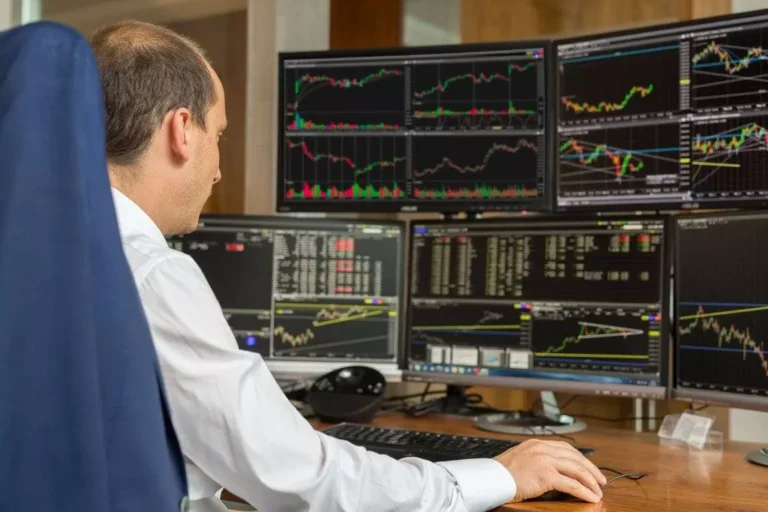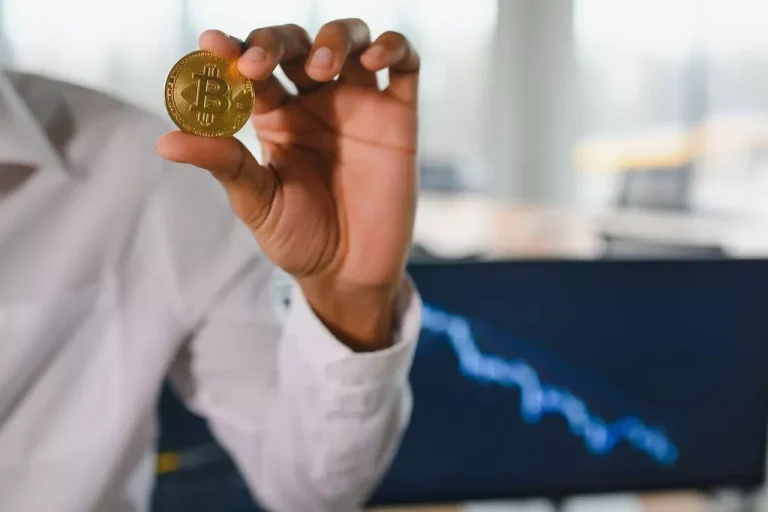FinTech
Where do brokers get their money from to pay clients? Beginner Questions BabyPips com Forum
Content
This is because most client accounts are closer to $1000 in value than they are $10,000. Despite the advertisements that you see of people in the Caribbean on a https://www.xcritical.com/ beach, or perhaps getting off of their private jet, most retail Forex traders do not have that much money in their account. Statistically speaking, most Forex traders will lose a large percentage of their account within 90 days, so the Forex broker doesn’t need to cheat them. For example, brokers in the United States need to have a minimum of $20 million in the bank.
What is the quality of your forex broker’s order execution?
Some trading brokers will charge you a small fee for every transaction that takes place on your account, including deposits and withdrawals. This may seem like a small price to pay, but if you’re an active day trader, these charges forex crm can accumulate in the long run. That is because most currency brokers’ standard rates are can be higher than what is quoted in our comparison tables as we have worked out exclusive deals with some providers.
More about these brokerage accounts (and why we chose them)
If you’re trading with a CFDs Market maker you can brokers payment system take advantage of the fact that they can provide you a better execution at a price you wouldn’t find on the market as CFDs give you that ability. Now you know the majority of methods used by brokers to make money. There can be others we didn’t mention but they’re mostly the same repackaged with a different name, in the end they are costs for using borrowed money or assets somehow.

Brokers that profit from trader’s losses
In the example above, you can see that in the exact same scenario, the broker chose to take the other side of the remaining 100 buyers and not send it to the market. Maybe the broker believes the traders will be wrong and can make a profit when those traders lose. Every time you try to get some of your money out of your brokerage account they may also charge you a fee for this. Direct Market Access brokers have also got a NO-Dealing Desk model. The moment they receive an order, they send it immediately to several liquidity providers in their list such as other brokers, banks or exchanges.
● Payment Processing Commission
However, some forex brokers will charge for some or all of the above and others will not charge for any of it, so it pays to check in advance. Non-market maker forex brokers typically offer variable spreads only. This is a standard fee that most forex brokers charge their clients for opening and closing trades and is often used instead of a flat percentage fee. In the foreign exchange market, traders and speculators buy and sell currencies when they think one currency will appreciate or lose in value against another currency. The foreign exchange, or forex market is the largest and most liquid in the world, and sees over $7.5 trillion traded daily. To execute trades in it, traders have to use an intermediary such as a forex broker.
Also, if the price falls more than 20 pips, you don’t have any more cash to cover any losses beyond that, so I’ll automatically close the bet and keep your $20. Of course, the broker has to make money so it quotes a different price depending on whether the customer wants to buy or sell. Whenever its customers trade, the broker has to take the opposite side of the trade.

Even if you’ve carefully selected investments, idle cash can start to accrue in your brokerage account from activities like dividend payments. Though the Federal Reserve has started to cut interest rates, overall rates remain high — it still pays to consider what rate your brokerage firm pays on this uninvested cash. Once you’ve opened an account at one of the online brokers below, you can fund the account through a bank transfer or by initiating an ACAT transfer from another brokerage. An ACAT transfer will allow you to move eligible investments to your new broker without selling them.
Forex brokers make money from various sources, including the spread, commission, overnight financing charges, and mark-ups. They use these sources of income to pay traders who make profits on their trades. It is important for traders to understand the different revenue models used by forex brokers and how they affect the overall cost of trading. By doing so, traders can choose a broker that offers the most competitive pricing and trading conditions for their trading style and preferences.
Neither our writers nor our editors receive direct compensation of any kind to publish information on tokenist.com. Our company, Tokenist Media LLC, is community supported and may receive a small commission when you purchase products or services through links on our website. Click here for a full list of our partners and an in-depth explanation on how we get paid.
- Brokers have three main ways of making extra money while offering leverage to traders.
- Overnight fees are most common if you’re trading using leveraged products, like CFDs.
- This practice encourages brokers to increase trading volume to reach higher rebate tiers.
- The online broker who offers free stock trades receives fees for other services, plus fees from the exchanges.
- Your broker will manage and execute financial transactions for you, across several different types of markets, like shares and forex.
- You just have an account with them and use them as the service provider to trade.Think of it as a trade on a selling website (like gumtree, craigslist or ebay).
Forex trading involves significant risk of loss and is not suitable for all investors. But the broker took on too much risk and doesn’t have enough money to pay out. In this scenario, if the broker doesn’t have the funds, it did not manage its market risk properly. A trading book, or “book” for short, keeps track of all the open positions that a broker holds. But in its case, the risk is that the price for GBP/USD will increase.

Simply put, this is a small amount you’ll be charged monthly if your account has seen no trading activity for an extended period. Brokers who get a commission from a trader are known as non-dealing desk brokers. Working with them you can send your trade to the liquidity pool, where the broker works.
In some cases, that bridge may extend to other forex traders as well. Anton Palovaara is an expert leverage trader with decades of experience trading stocks and forex through proprietary software. After shifting over to leveraged crypto trading in derivatives and futures contracts he has become an influential figure in the cryptocurrency industry. Anton’s trading strategies have helped numerous investors achieve significant returns on their crypto investments. With a keen eye for market trends and a deep understanding of technical analysis, Anton has developed a reputation as a shrewd trader who is not afraid to take calculated risks.
But a forex broker does not act on your behalf, nor is it obligated to act in your best interest. At the end of the day, the perceived ethics of the B-Book model largely depend on the broker’s transparency in informing clients about their execution model and ensuring fair practices. Both A-Book and B-Book models can be considered ethical if they prioritize fair pricing, best order execution, and open communication with clients. This figure represents the Average Revenue Per User (ARPU), which gives a numerical approximation of how much a forex broker makes per client. Well to make this short I’ve seen guys making $200 per pips ranging from 700 to 1500 pips per week and imagine there are about 500 of these guys or maybe more. I figure how the heck do brokers pay this.But anyway thanks guys for a bit of info this can really help.
This lesson is intended as an introduction to the mechanics behind retail forex trading. It’s important to remember that spreads are influenced by volatility, liquidity, and trade volume in addition to brokers. Therefore, while bonuses serve as an attractive incentive for traders, they also indirectly contribute to the broker’s revenue through subsequent deposits made by the active traders. However, indirectly, leverage in forex can be financially beneficial for brokers, as it can lead to larger trading volumes and more frequent trading.




